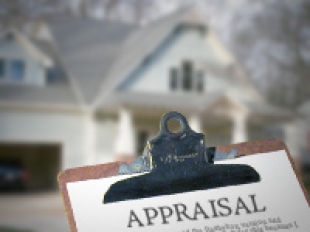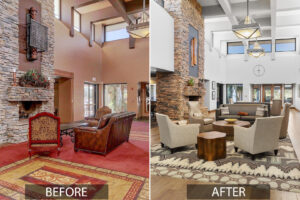
Buying a new home directly from a builder can be an exciting process. The thrill of touring the model homes and envisioning yourself living in one of these beautifully decorated houses often has buyers excited about the home and thinking about their design choices: what color tile and carpet will I pick, what type of granite will we put in the kitchen, which cabinet do we like, maple or cherry – the choices are fun and you’ll be getting the home exactly the way your tastes dictate. Signing the builder’s contract and forking over your check for earnest money just seem like a formality in your road to blissful new home ownership. What could possibly go wrong?
Don’t forget that you are signing a legally binding contract with the builder.
Unlike most standardized resale contracts that have provisions to protect both the buyer and seller, builders’ contracts are designed to protect the builder, and ONLY the builder. The big national builders have had lots of experience dealing with people trying to wriggle out of contracts when buyers decide to change their mind, so their contracts are pretty air tight and don’t give you any wiggle room to renegotiate without losing your earnest money (which has increased to about $10,000 – $25,000 to stop people from walking away from a deal).
The price you’ve agreed to is set when you sign the papers, not when you close on the house months after you’ve signed the contract. Since most new homes take about four to six months to build, that leaves lots of time for things to change once the thrill of picking out your colors has worn off. In an upwardly trending market, buyers are thrilled that their home is worth more at the time they close on it than it was when they signed the contract a few months ago, but….and in a down market, that can mean lots of time for the prices in the area to trend downward too.
So what happens when your appraisal comes in thousands of dollars below your contract price?
We’ll use an example of a contract price of $200,000, and the appraisal comes in a couple weeks before your scheduled closing with an appraised value of $190,000.
CASH SALE:
If you’re paying cash, you probably didn’t even order an appraisal, so you’ll never know that your house is worth thousands of dollars less than what you’re paying unless you are working with a Realtor. Your Realtor can and should give you comparable sales information if you want it – but it doesn’t really matter. You’re going to be paying the price you’ve contracted for unless you’re willing to walk away from the house and your earnest money. The builder will not renegotiate your price, and their contract probably protects them.
LARGE DOWN PAYMENT:
If you’re financing with a substantial down payment…say 30% or more, you will be getting an appraisal because the lender will require it. But again, if you’re putting 30% or more down, your actual loan amount didn’t change so the builder isn’t going to let you off the hook for the higher price. For example, if your house price is $200,000 and you’re putting $60,000 down (30%), your loan amount is $140,000. If the house appraises for $190,000, your loan amount is still $140,000, which is well below the 80% maximum loan to value ratio that banks use as the cut off between charging extra fees, interest rates and Private Mortgage Insurance.
20% OR LESS DOWN PAYMENT:
If you’re financing with barely 20% down or less, and have no resources for the extra $10,000, AND you no longer qualify for the higher monthly payments that banks will charge based on having less than 20% down payment, then the builder will probably reduce the price of the house in order to save the sale. Say you were planning to finance $160,000 (80% of the sale price). The lower appraised value now makes your $160,000 loan only 84% of value – and now the banks will charge higher interest rates and Private Mortgage Insurance. These added costs may mean that you no longer qualify for the monthly payment. In a down market, the builder is going to do anything they can to save the sale, so they’ll probably work with you. But – and this is a big BUT – if you still qualify for the higher payment, you’re probably still stuck with the higher price and the higher payments.
So why is the builder so hard lined about the price?
Well, the price in the contract is the price in the contract – period.
In an up market, it’s the buyer who benefits by being able to lock in their price when they write the contract. Even though the price of the house goes up $20,000 before their house is ready, it’s the builder who is forced to honor the contract price. What would your reaction be if the builder asked you to renegotiate the price and pay an extra $20,000 for the higher appraised value of your house? If you’re human, it’s NO WAY BUDDY!
In a down market, the tables are turned and it’s the builder who’ll benefit from the locked in price, and their reaction is the same as yours would be in the previous scenario – NO WAY!
How can you protect against getting stuck with a house that’s worth less when you close than when you signed the contract?
WORK WITH A REALTOR
That friendly sales associate in the model home sales office represents the builder, not you, so they are not going to help you negotiate against the builder, and they are not going to admit to you that they haven’t sold a home in three months. Ask them how things are and they will reply, “sales are great, we have a lot of interest in our community.”
In Arizona it doesn’t cost you one single dime to have a Realtor accompany you to the new home communities and represent you. The builders always pay the Realtor’s commission even though they are there to represent you and to protect your interests. A knowledgeable Realtor – one who has experience dealing with new home builders – can help you identify trends in the neighborhood and give you information about comparable sales – both resales and new home sales. This can help you keep your design options in line with what neighborhood values are so your house isn’t more decked out and more costly than other homes. It can also give you ammunition when writing your contract with the builder – ask for some concessions based on the fact that the house might be worth xx% less in a few months. If the builder won’t deal, then you can at least make an informed decision about whether or not you want to move forward with a to-be-built home in that community.
BUY A MOVE-IN READY HOME
A “spec” home is also commonly referred to as an inventory home. It’s a house that is already in progress. It can be just started, or it might be move-in ready. Sometimes builders end up with “spec” homes because a buyer couldn’t complete a sale on a home they ordered, so the home has the design options selected by the previous buyer. Other times, they want to finish a street or phase of the neighborhood and just select a home to be built in order to finish out the area, in which case the builder’s representatives made the design choices.
In either case, builders usually offer their best deals on “spec” homes. The farther along the house is to completion, the more the builder is willing to negotiate. Again, have your Realtor run “comps” on recent sales to make sure you’re really getting as good a deal as you can. Since the house is ready, or almost ready, the chances of it losing a lot of value between the time you sign the contract and the time it closes is reduced to virtually no risk.
Buying a new homes is always exciting, and we at www.GolfAt55.com can help you avoid any unpleasant surprises with new or resale homes when it comes time to close. Our expert advice and guidance is always free to the buyer, so go ahead and take advantage of us…we love what we do and you’ll love working with us!




